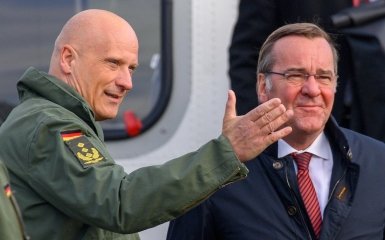Russian propagandist Margarita Simonyan made public the alleged interception of several German air force generals about how Taurus missiles could be deployed to destroy the Crimean bridge.
Russia claims that Germany is developing a plan to destroy the Crimean bridge
According to Putin's henchman, the conversation between the German generals took place on February 19, 2024.
The head of the Operations and Training Department of the Air Force Command Grefe, Air Force Inspector Gerhartz, and employees of the Fensk and Froshtedt Air Operations Center allegedly took part in the said negotiations.
In addition, Margarita Simonyan assures that one of the officers mentioned a planned trip to Ukraine on February 21 "to coordinate strikes on Russian targets."
I would like to say something more about the destruction of the bridge. We actively dealt with this issue and, unfortunately, came to the conclusion that the bridge is similar to a runway due to its size. Therefore (for destruction — ed.) it may not take 10 or even 20 missiles, one of the German generals allegedly stated during the discussion.
Subsequently, the representative of the Ministry of Foreign Affairs of the Russian Federation, Maria Zakharova, began to demand that the official Berlin immediately explain the words on the recording of unclear origin, otherwise Russia will consider that Germany "admits guilt."
How Germany reacted to Russia's accusations
The German Ministry of Defense has officially confirmed that it has already initiated an investigation into whether the conversations of the generals of the German Air Force were intercepted.
According to one of the representatives of the ministry, the Federal Department of Military Counterintelligence (BAMAD) "initiated all necessary measures" to investigate the incident.












